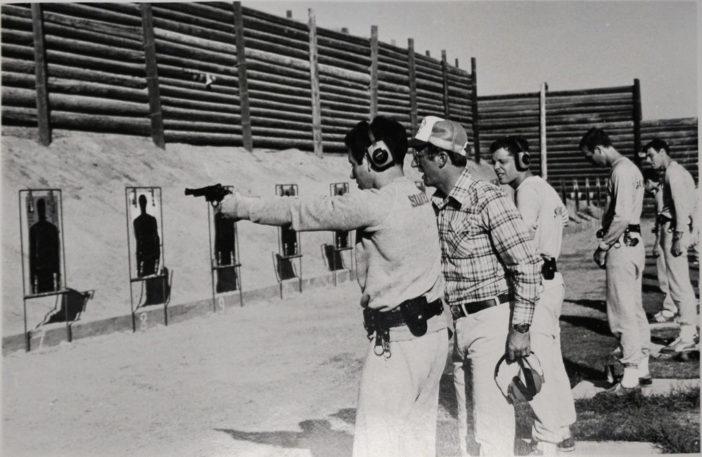To become a police officer in Orange County in 1967, a recruit likely would enroll in the Orange County Peace Officers Training Academy and six weeks later, he’d be sworn in and on patrol.
Times certainly have changed.
The deadly 1997 North Hollywood bank robbery, in which police were outgunned by two heavily armed bank robbers wearing body armor, called for police to have more advanced weaponry.
The Sept. 11 terrorist attacks and subsequent acts of terror required a need for counter-terrorism training, even for local law enforcement.
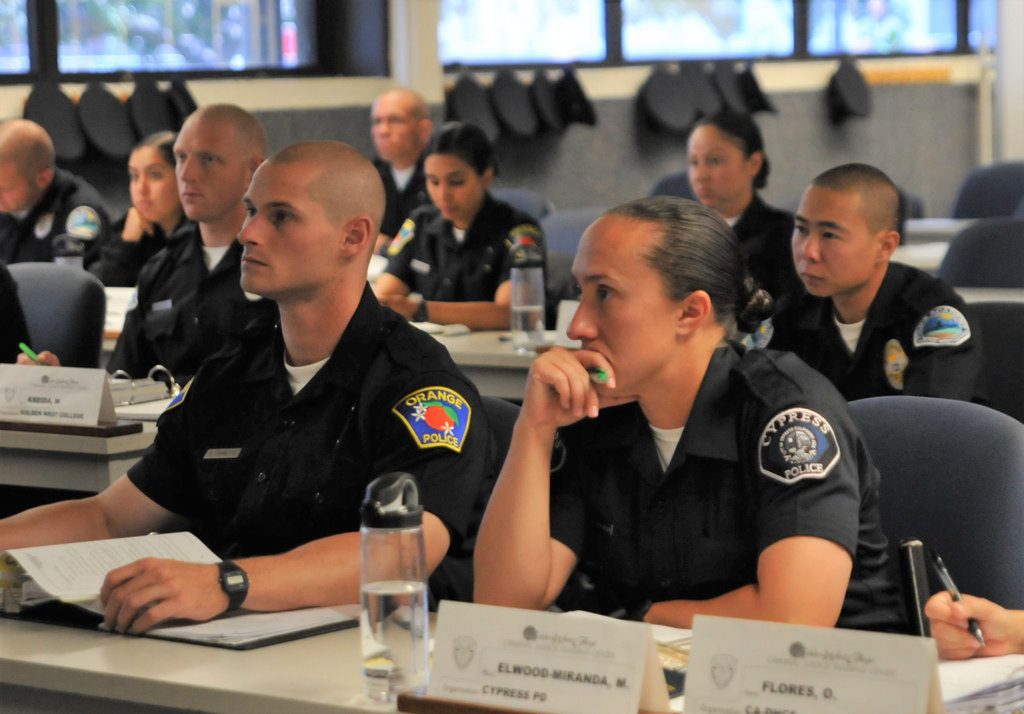
Recruits from Class 155 representing several police agencies listen intently during a lecture on criminal law at the Criminal Justice Training Center. Photo by Lou Ponsi/Behind the Badge OC
The list goes on.
With the proliferation of mental illness, homelessness, high-powered weaponry, more potent street drugs, demands to curtail domestic violence and anti-police politics, peace officers also must be expert crisis counselors, mental health clinicians and excellent communicators.
The demands aren’t all that have changed since the training academy, now known as the Golden West Criminal Justice Training Center (CJTC), opened more than 50 years ago.
More women and minorities than ever are tackling the rigorous challenges that come with being a recruit.
To meet the increasing demands on law enforcement, the training regimen has expanded from six to 26 weeks.
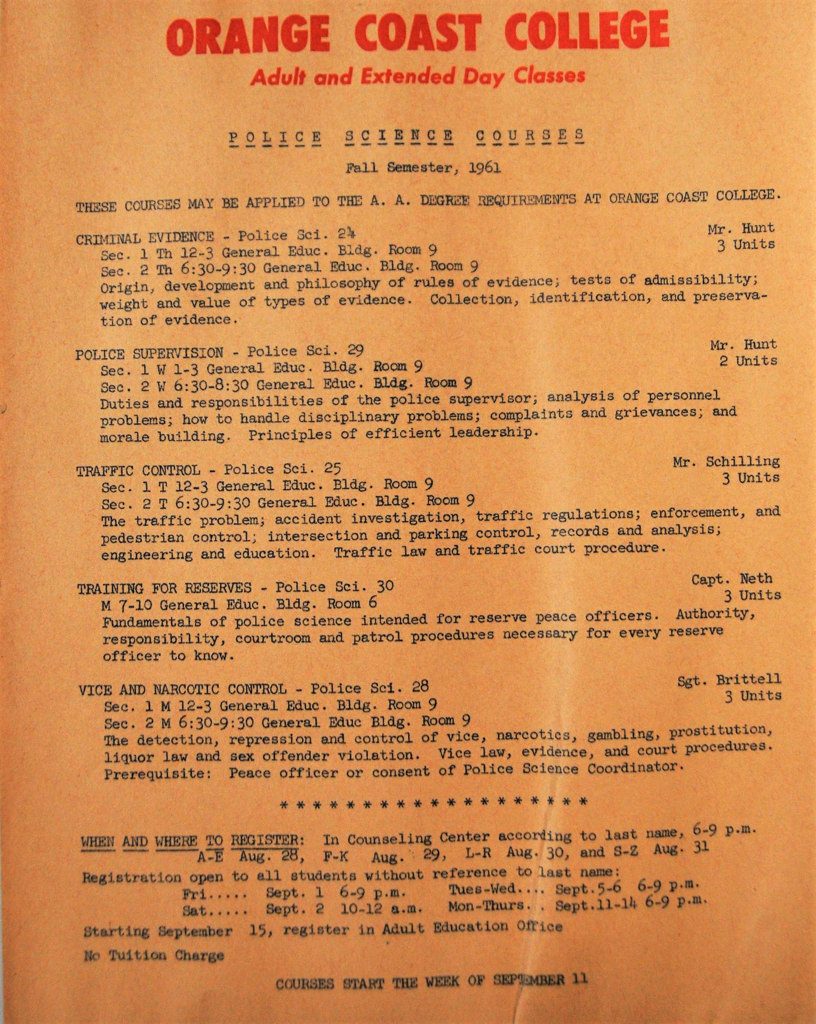
A 1961 course syllabus of the Criminal Justice Training Center lists basic courses such as narcotics control, criminal evidence and traffic control. CJTC photo
“As our society has become increasingly more complicated, the expectations for law enforcement and institutions like it have changed,” said CJTC Dean Ron Lowenberg, a retired police chief and a graduate of the academy himself. “Traditional policing served its purpose in its day, but we are way past traditional policing.”
When Lowenberg graduated as a member of Class 36 in 1967, recruits were schooled in firearms training, basic criminal law, first aid, patrol and investigative techniques — and little else.
Before they even begin academy training, today’s recruits need to pass CJTC’s six-week orientation program or an orientation at a sponsoring agency.
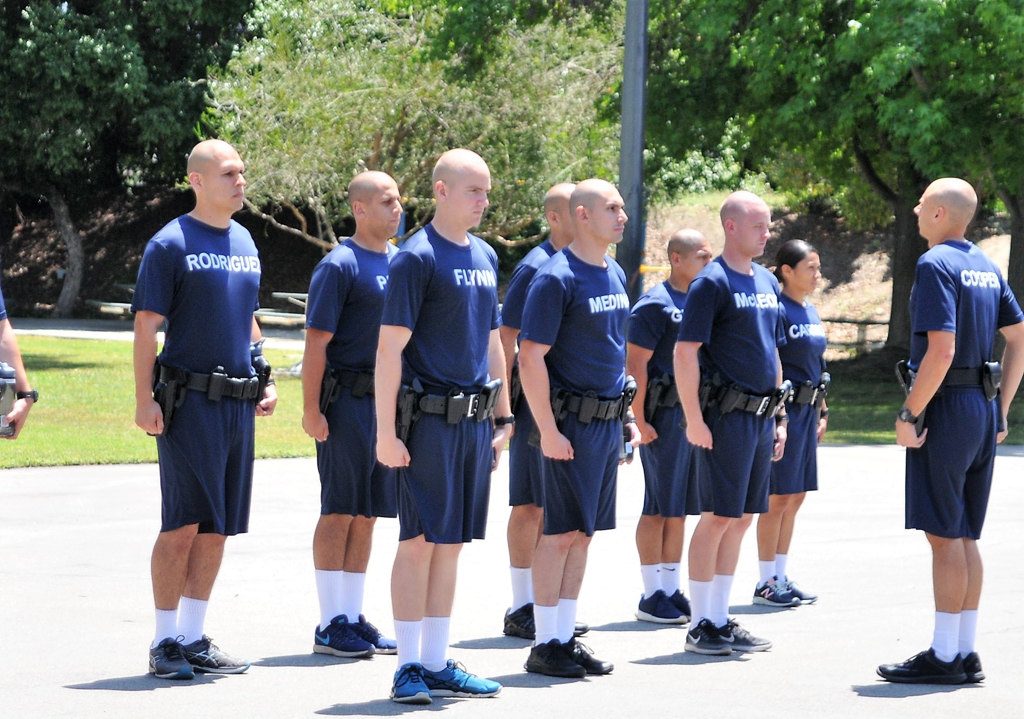
Recruits from Class 155 of the Criminal Justice Training Center stand in formation before being dismissed for a break. Photo by Lou Ponsi/Behind the Badge OC
Class 155, CJTC’s current group of recruits, will be trained on effective and safe methods for interacting with the mentally ill, will participate in a semester-long character development course and also will receive extensive firearms instruction that includes real-life training in a state-of-the-art simulator lab.
They will participate in a “Fair and Impartial Policing” curriculum designed to remove biases toward specific groups.
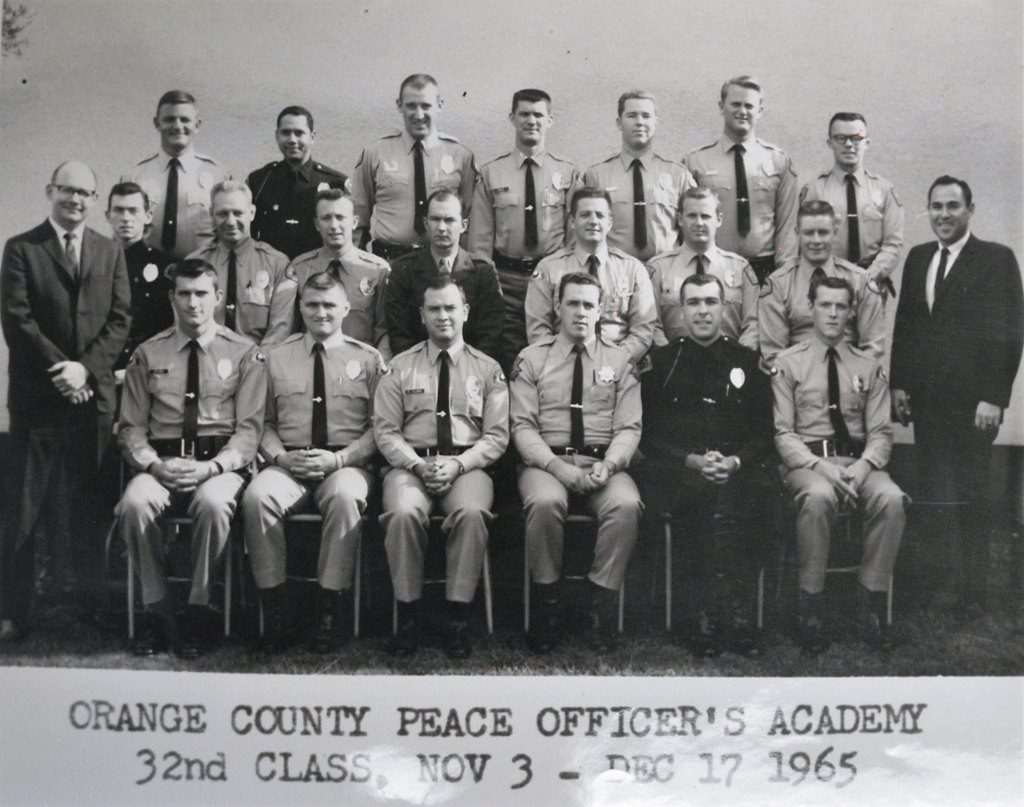
But even with comprehensive training, many situations confronted by peace officers today can’t be fixed by simply making arrests or writing citations, Lowenberg said.
“Many of the situations we deal with in a community are bigger than any one organization,” Lowenberg said.
Enter “community policing,” a strategy that involves collaborations between the police and various factions of the community to solve problems.
Community policing instruction represents a significant portion of CJTC’s curriculum, said Steve Ames, a former Orange PD captain, CJTC’s program coordinator and a CJTC graduate.
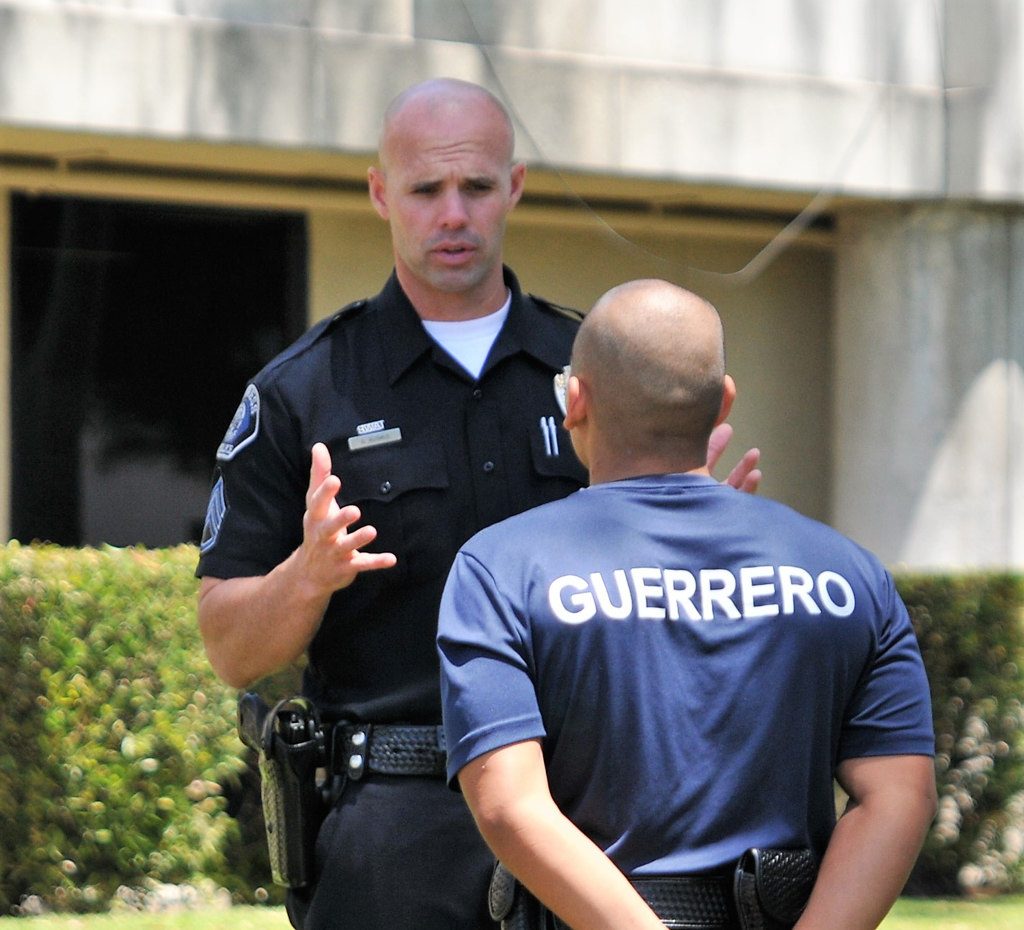
Cypress PD Sgt. Scott Ausmus, a training officer at the Criminal Justice Training Center, counsels a recruit. Photo by Lou Ponsi/Behind the Badge OC
“It’s basically the understanding that this isn’t a doctor-patient relationship,” Ames said. “We are not going to tell the community what is good for them. We need to listen to the community to understand what is important to them.”
CJTC’s community policing curriculum has been recognized by the Orange County Human Relations Commission and its semester-long character development course is believed to the only of its kind.
“We try to emphasize to the recruits that we are not going to lecture the community about what we think is important to them,” Ames said. “We need to listen to them.”
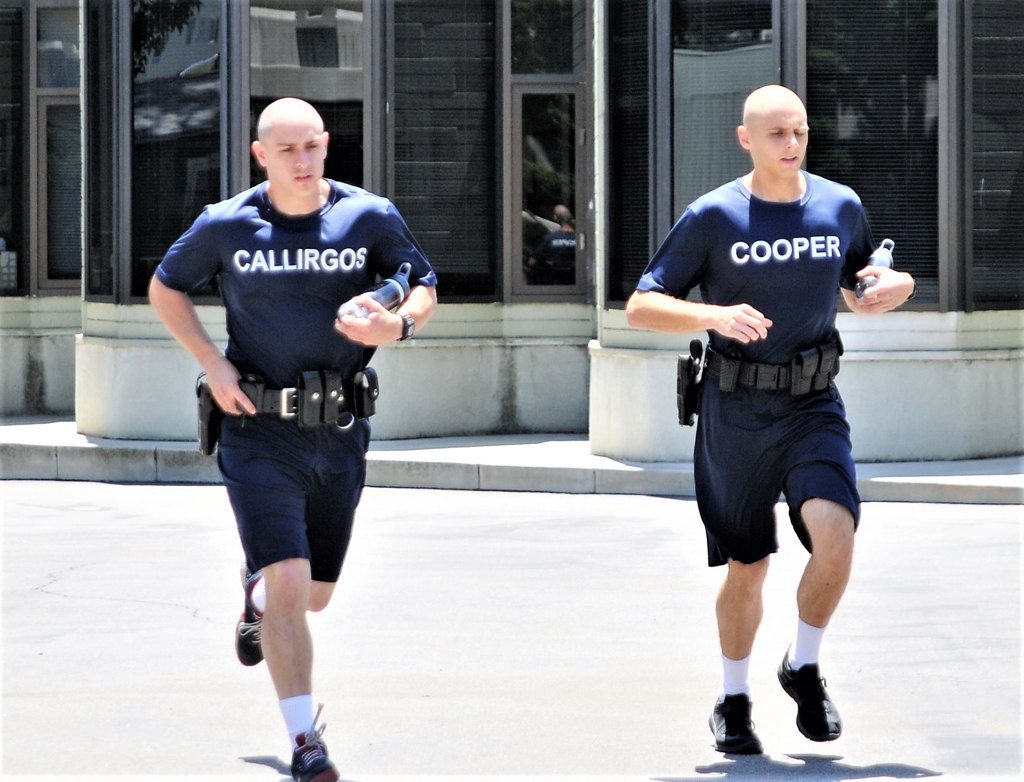
Running from class to class is part of the routine of recruits at the Criminal Justice Training Center. Photo by Lou Ponsi/Behind the Badge OC
Most CJTC instructors are current law enforcement professionals from local, state and federal agencies.
In addition to its 26-week basic course that prepares recruits for traditional law enforcement careers, the CJTC offers a 16-week specialized investigator course geared toward careers in state agencies such as the Department of Insurance and the Medical Board.
The CJTC will expand into a new 39,000-sq.-ft. center, currently under construction and adjacent to the current location.
“I think there are a lot of young men and women who are drawn into a career in law enforcement for the same reason that a lot of people went into the military after 9/11,” Lowenberg said. “They believe in their heart of hearts that the majority of cops out there on the street 24 hours a day, seven days a week, 365 days a year do a great job and they just want to help their community.”
Criminal Justice Training Center 50th Anniversary Celebration at Golden West College
While the Criminal Justice Training Center is actually 57 years old, the center is joining in the college’s 50th anniversary
When: 1:30 to 4:30 p.m., May 16
Where: Golden West College, 15744 Golden West College. The Criminal Justice Training Center is on the south end of campus, adjacent to Edinger Avenue.
Festivities include an open house, a fly-in from law enforcement helicopters, historical displays of Orange County law enforcement, demonstrations of CJTC’s programs, a video detailing the history of CJTC, “Coffee and donuts with a cop” tent and giveaways.
About the CJTC: Began in 1955 with a five-week course in the city of Orange and moved to the Orange County Fairgrounds in 1960. In 1969, the academy relocated to Orange Coast College and then to its current location at Golden West College. CJTC is the first college-based academy to be certified by the California Commission on Peace Officers Standards and Training.
Hundreds of CJTC graduates have advanced to command staff positions and nearly 40 have served in top management positions. Three Orange County police chiefs graduated from the CJTC.
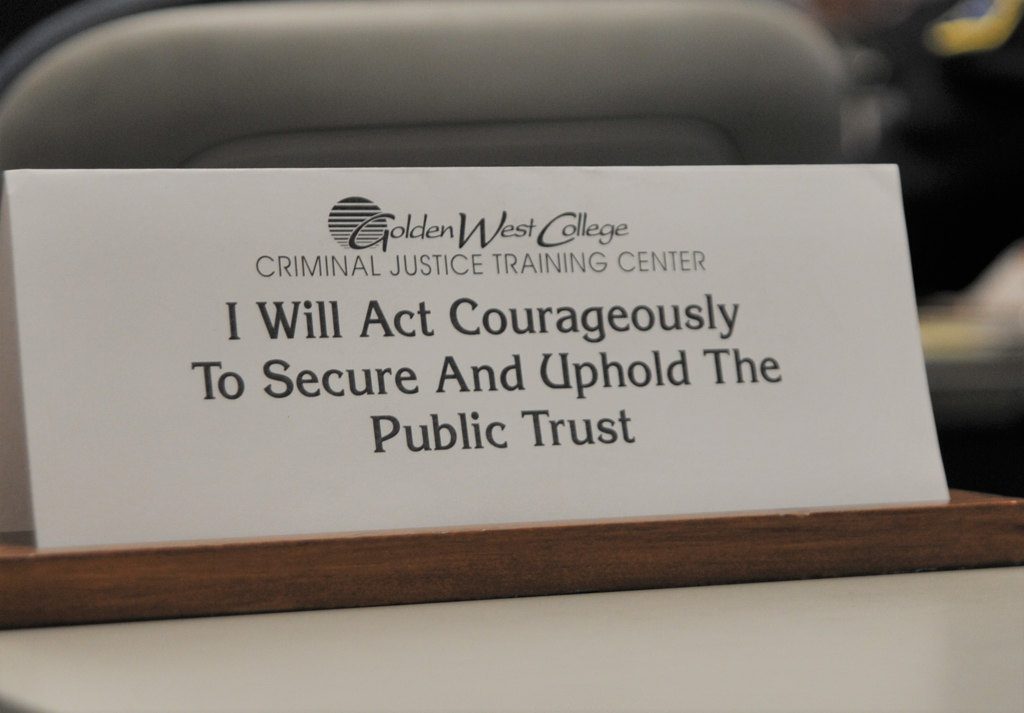
A table tent is positioned at every desk in a classroom at the Criminal Justice Training Center. Photo by Lou Ponsi/Behind the Badge OC
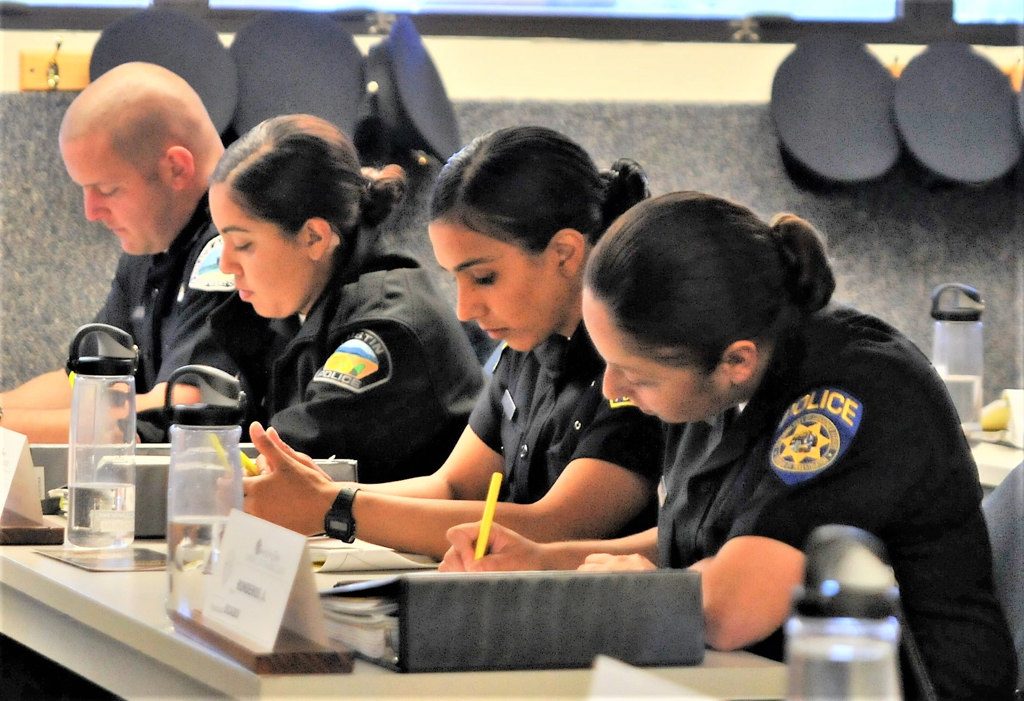
 Behind the Badge
Behind the Badge
